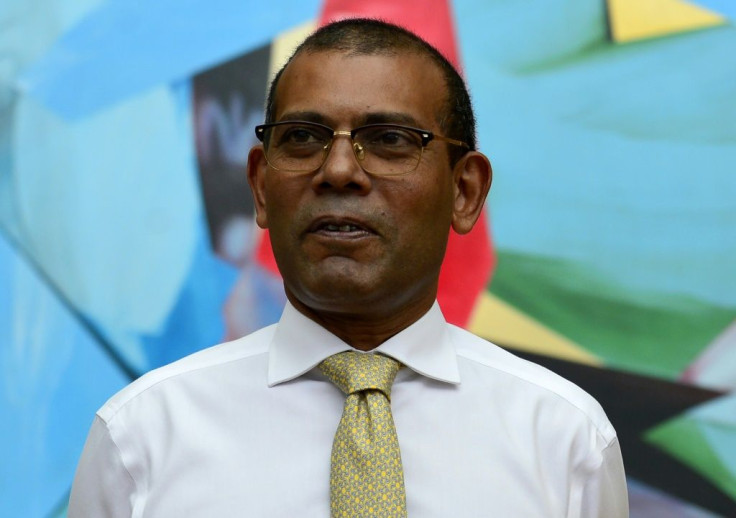
KEY POINTS
- Mohamed Nasheed said the new government's foreign policy might change the Maldives' relationship with India
- He also noted that China had a strong interest in having a "bigger foothold" in the Indian Ocean
- Pro-China leader Mohamed Muizzu's win in the recent elections has breathed new life into the India-China power play
Less than two months after pro-China leader Mohamed Muizzu emerged victorious in the Sept. 30 election in Maldives, former president Mohamed Nasheed said the future of the island country depended on its relationship with India.
Nasheed, who was the country's first democratically elected president and often called the "Mandela of the Maldives," said India was "paramount" for the small island's safety as "China is on the rise."
"For our safety and security, India is paramount. We are a small island in the middle of the Indian Ocean. There are pirates and drug dealers. I must also mention that China is on the rise; it has a strong interest in having a bigger foothold in the Indian Ocean," he said.
"We will have to be very diplomatic about how we go about our relations with all countries but we have to understand that India is our neighbor, it is there to stay and it is next door. We had an excellent relationship for thousands of years and I'm sure it will continue," said the former Maldives president.
The small island of Maldives in the Indian Ocean has been a battleground for India-China competition over the last couple of decades.
India has long-held good relations with the Maldives, and was one of the first countries to establish diplomatic relations with the latter, following its independence in 1965. Nasheed, who won the elections in 2008, was open about his desire to maintain a strong relationship with New Delhi, but also continued expanding ties with Beijing.
China's tentacles into the Maldives only grew in the early 2010s after authoritarian Abdulla Yameen rose to power following a period of political turmoil. Beijing's influence eventually began growing in the island nation with an influx of Chinese loans and investments and with Malé's formal membership in BRI.
When President Ibrahim Mohamed Solih came into power in 2018, he declared the "India First" policy" and bolstered relations with New Delhi, tilting the Maldives toward India once again.
"India – Maldives relationship did deepen over the last five years. India is assisting Maldives in nearly 45 projects which has brought significant changes in the quality of lives of Maldivian people. A considerable amount of trust also developed between the governments of two countries," Anand Kumar, Associate Fellow at the Manohar Parrikar Institute for Defence Studies and Analyses (MP-IDSA), New Delhi, told International Business Times.
The Uthuru Thila Falhu naval base that India is building in the Maldives is also seen as New Delhi's way of keep tabs on China even though the new harbor is officially for the use of the Maldives National Defence Force Coast.
The "India First" policy was contested with the "India Out" campaign of the Progressive Alliance -- a coalition of the Progressive Party of Maldives (PPM) and the People's National Congress (PNC) -- which won the September elections.
The election result is likely to have caused uneasiness in New Delhi due to concerns about Beijing pushing itself further into the Maldives and elbowing India out.
Following the elections, Mohamed Muizzu vowed to remove "foreign military personnel" from the Maldives, indicating his desire to have India do away with its military presence in the country.
"We had presidential elections and there is a new government. This new government will follow a different foreign policy. I can't see how that can change our relationship with India. I do know that there was some rhetoric asking Indian troops in the Maldives to leave but I don't think this is the path from which the people of the Maldives would benefit," Nasheed said in his recent interview with ANI.
"I believe the new government will come to understand the intricacies of this," he added.







